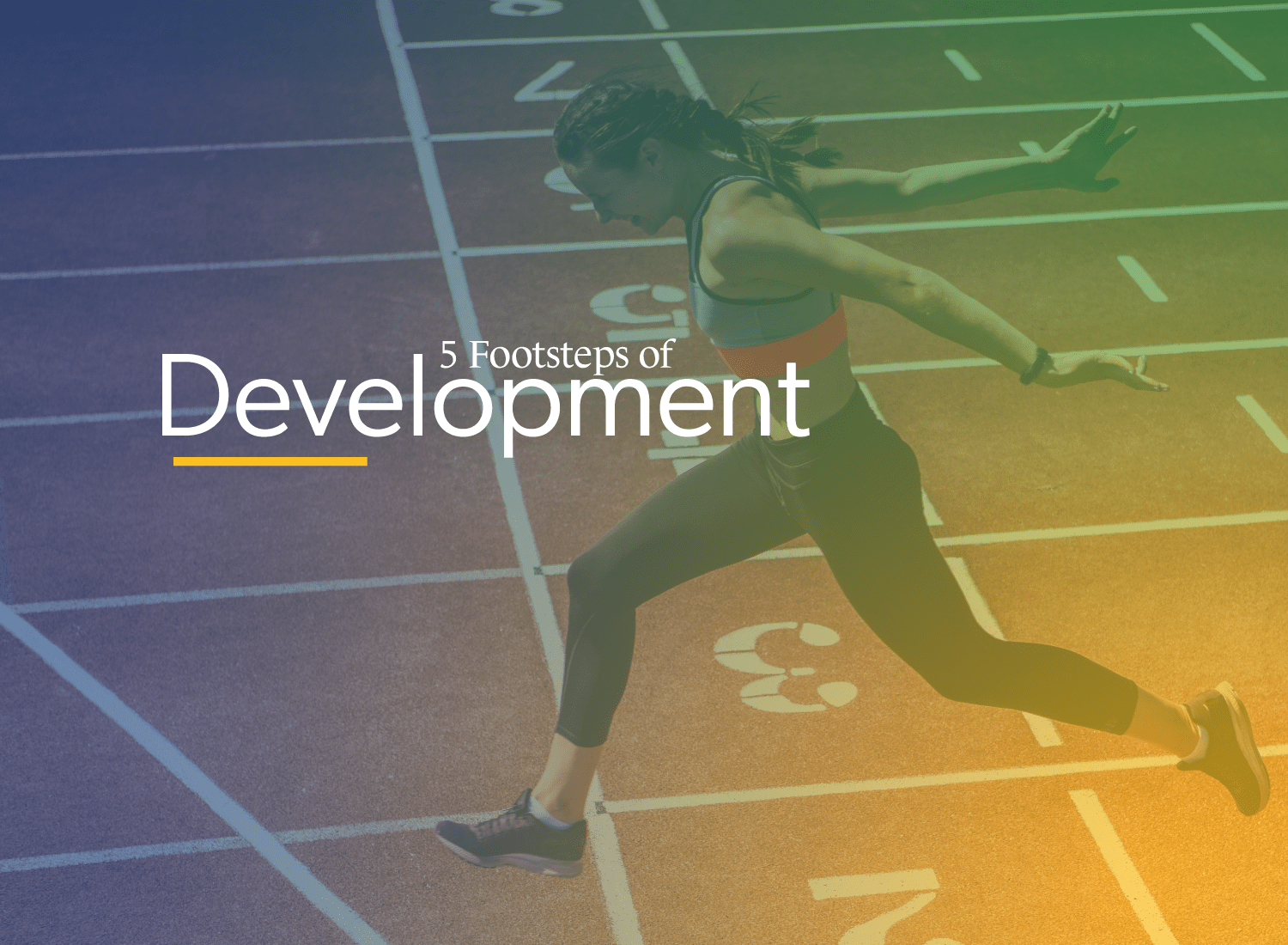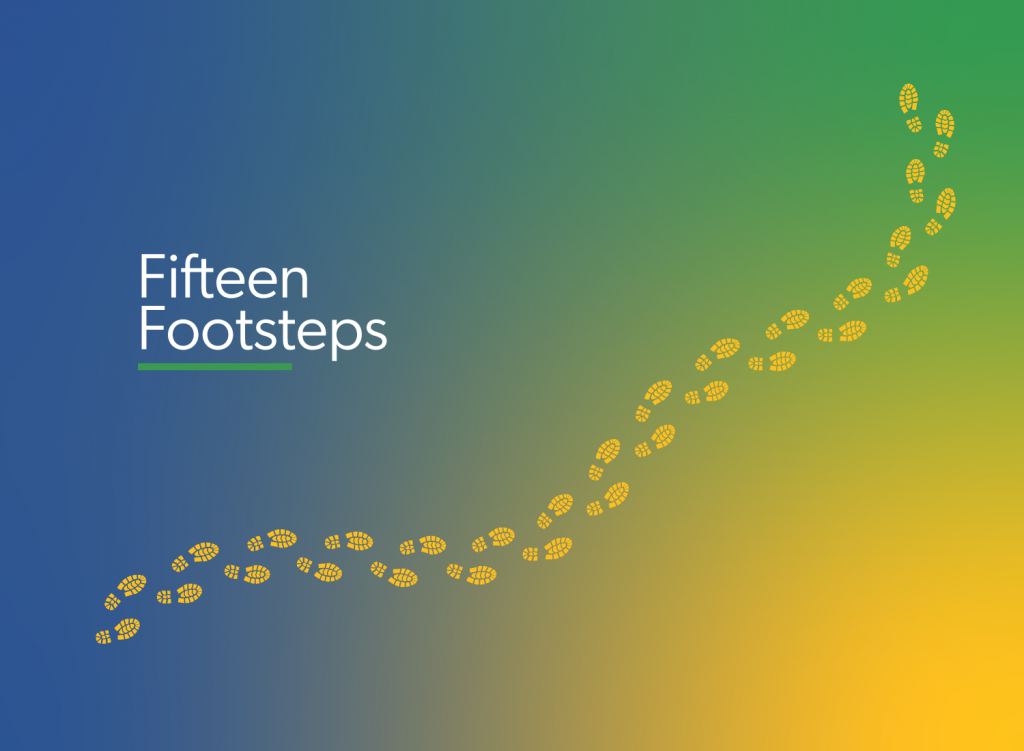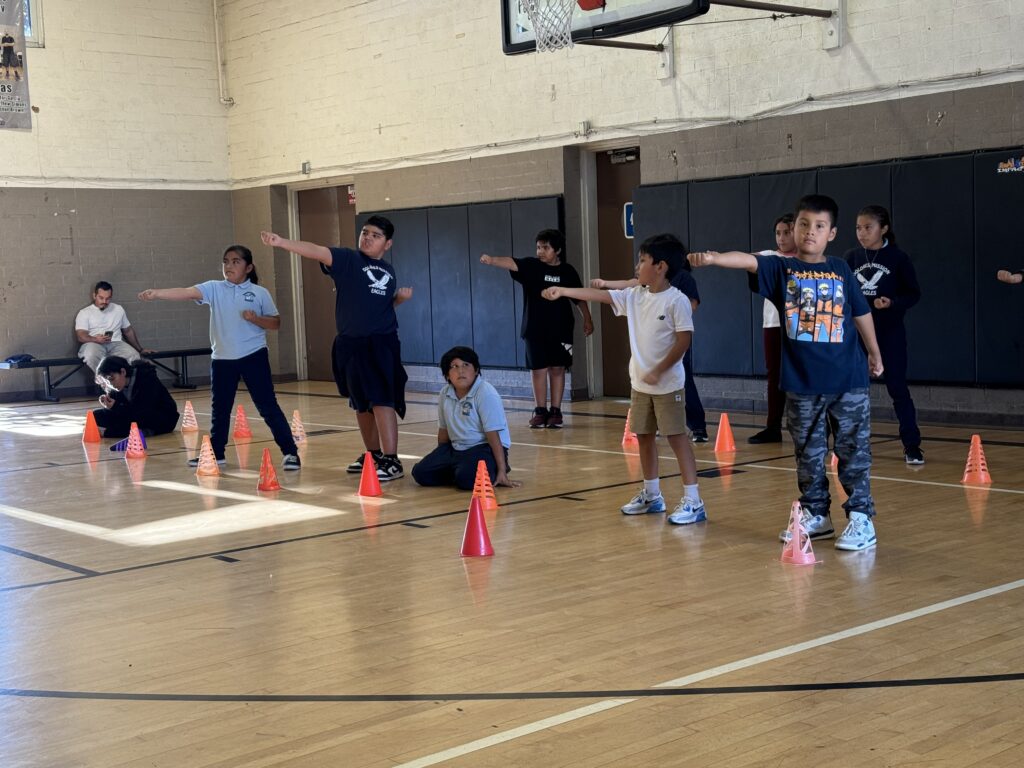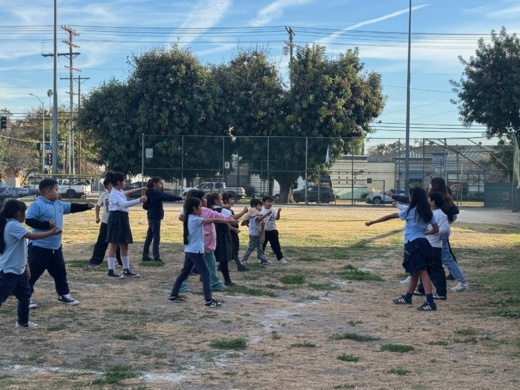For many marginalized groups across the country, everyday tasks can feel like impossible challenges. Children affected with ASD often find themselves in a cyclical pattern of low self-esteem and self-confidence which contributes to a stagnant level of growth in education. Those within the foster care system can have difficulties with accessibility and convenience, while those who are victims of bullying or domestic violence might be unable to function in a social setting due to anxiety or past trauma. These groups can share similar challenges but have one thing in common: a need to find purpose, confidence, and discipline while working towards a lifestyle of self-determination and passion.
We have found through decades of experience teaching in the martial arts industry that skill acquisition is a thorough and successful method to build these character traits. The ability to understand the characteristics that build a strong foundation will inevitably improve the probability of future successes. Knowing this, we have dissected what we believe are the “15 Footsteps” – behaviors that, if mastered, will contribute to an overall positive experience within the process of any skill acquisition.

5 Footsteps of Character
These five footsteps are typically associated with the beginner level of competency during skill acquisition. It’s important to build these characteristics first because ultimately, they are at the core of the remaining traits. Building a strong comprehension of these five traits will lay the pathway to learn the rest.
Self-Esteem: Self-Esteem is the act of believing that you have worth: that you’re valuable, and you have positive contributions in your everyday life. The absolute essence of self-esteem is to simply believe in yourself. To some degree, we all must possess at least a small amount of self-esteem to even get by in our daily lives. However, many of us lose our way when outlying factors are brought in or something changes dramatically in our lives that we are not expecting. Change often brings about a fear that can undermine our self-esteem.
Building that self-esteem is one of our core principles. We understand how difficult it can be to retain the value within when challenges come into our lives, especially for children affected by adverse conditions or health challenges. We teach you to not only master that self-esteem and hold onto that value regardless of changes in your environment, but we also demonstrate how to integrate that into your personal life.
Self-Discipline: Self-Discipline is having the fortitude to do things you may not want to do, but you do them because you know it is good for you. Many pieces of our lives aren’t there by choice, but rather by necessity. As we get older, we realize that there any MANY things we experience in our lives that we don’t “want” to do, but we must. Without the discipline to make the changes necessary and create a positive, forward-thinking environment, it is easy to fall into a destructive pattern that creates more difficulty in the end.
We understand how important it is to have self-discipline, especially in an environment of skill development. Developing new skills and habits requires focus and is often encumbered by parts that we may not necessarily enjoy. However, to continue our journey we must thoroughly comprehend and integrate self-discipline, learning all parts regardless of our liking to them. We show you how to work through those challenges and become a stronger individual because of them.
Self-Confidence: Self-Confidence is the belief that you can accomplish anything you set your mind to if you maintain heart and humility. It is the building block of success that comes to fruition after mastering the art of a strong self-esteem.
Self-Confidence is integral: it is the ability to undertake an increasingly difficult repertoire while maintaining focus and humility. During our extensive experience in instruction, we have dissected challenges that our students have had to endure such as ASD, bullying, foster care, and countless others. These challenges make the process of gaining self-confidence even more difficult; however, our training has been proven in many prior examples to overcome these challenges. We aim to help our students recognize their potential through building their self-confidence in the classroom and giving them the tools to do it outside the classroom. Through mastered, self-paced challenges and individualized feedback, we encourage our students to move forward in their journey and in life with confidence.
Self-Control: This could potentially be one of the most difficult “selves” we discuss in this section. Self-control is the strength to limit or eliminate things that we want to do but will not do because they are not beneficial.
The pattern in which we have designed these “selves” is not ambiguous: rather, we have witnessed over several decade of instruction that the order of attaining these traits is imperative. One cannot have a solid grasp of self-control if they cannot master self-esteem, discipline, and confidence first. Self-control, while exceedingly difficult at times, is an important piece to a successful life. There will be times where the idea of attending class or practicing at home isn’t the most appealing, but the end result is a culmination of those difficult decisions and the success that will follow.
We strive to share and encourage beneficial decision-making skills for all walks of life. The perfect balance between self-discipline and self-control can be achieved through our decades of experience, and we’re excited to show you how to enrich yours.
Self-Defense: You might wonder why we’re discussing the definition of self-defense in a skill development context. Self-defense is so much more than just being able to fight: it is the ability to comprehend your personal space, and have the courage to defend it, when necessary. It means that we can differentiate between an immediate threat to our well-being and safety and have the confidence/esteem/discipline/control to respond to it effectively.
When you enroll with us, we have the experience and the knowledge from decades of training to demonstrate to our students the full package: a combination of physical, emotional, and mental fitness that will give them a pointed advantage when/if they are in a self-defense situation. Children who have been victims of bullying or even violent situations outside of school can utilize this training to respond to these scenarios properly and safely.

5 Footsteps of Development (Growth)
This series of footsteps is focused on the intermediate levels of skill acquisition. Whether you are encountering difficulties with a learning environment due to challenges from autism spectrum disorder or other hurdles like foster care, bullies, or violence, you can progress strongly towards your physical/mental/emotional goals by mastering these next 5 footsteps. While these personality traits are equally important in the grand scheme, they are much easier to master once you understand the previous 5. Each level goes a bit deeper into the concept of full self-mastery, and each depends on the prior to get a full comprehension.
Self-Awareness: Self-Awareness is developing the courage to achieve conscious knowledge of one’s own character, feelings, and motives. It’s imperative to not only be aware of your surroundings, but to also understand your own motivation and feelings. Without a thorough comprehension of both, it’s likely you’ll make random, inappropriate decisions and consequently, get hurt (physically, mentally, or emotionally).
As we’ve discussed previously, the components of self-esteem and self-confidence fall into place within self-awareness. The study of any topic with the intention of developing a skill doesn’t simply lie within the aspects of a physical standpoint, but also heavily depends upon mental awareness and a thorough understanding of how motivation plays into your efforts. We don’t simply focus on the physical aspects of skill development but stress the importance of a healthy mind and body relationship. When the two are in harmony, you are unstoppable.
Self-Improvement: Self-Improvement fully embodies each of the points we’ve discussed so far. It is the responsibility to better oneself in knowledge, status, or character through effort and perseverance. It is impossible to achieve the other “selves” without a concerted effort to push towards those goals.
Your knowledge and comprehension grow as you experience variables in your environment. Children who suffer from things like ASD, being bullied, those who experience trauma through home life challenges like foster care, and many others often cannot progress in self-improvement because of a lack of resources and compassion.
We utilize our decades of experience to share with our students how vital self-improvement is in all aspects of life, especially for those fighting inherent obstacles. Inside or outside the classroom, the ability to consistently strive for improvement will always result in success.
Self-Respect: Often, individuals associate self-respect with being overly confident or cocky. In reality, the meaning of self-respect lies within the development of duty and responsibility to behave with honor and dignity at all times. In situations of pressure and stress, it’s easy to lose one’s self-respect by losing control. As discussed previously, self-control is an integral part of everyday life. Maintaining honor and dignity not only strengthens your ability to handle whatever life throws your way, but also lends to an image of leadership and influence.
Our instructors strive to integrate the mental fortitude of self-respect into our students. We know how important it is to be able to hold onto that honor and dignity, and we work with our classes to not only respect one another, but to possess a strong self-respect.
Self-Determination: Self-determination within the process of skill acquisition isn’t always necessarily related to an end goal. It’s also about the journey and mastering the ability to improve and maintain confidence to move forward, in and out of the classroom.
Self-determination is about developing the tools necessary to control one’s own life and destiny. It’s about pushing through adversity, even when your personal desire might reflect otherwise. Self-determination goes hand in hand with self-improvement because the motivation to improve must be accompanied by a degree of determination to succeed. Your journey will not be easy, but it will be worth it.
We believe it is important to help our students develop these tools that will help them control their life and influence their destiny. We know the challenges that can derail our focus, and we help our students maintain their mental strength to push past any reservations and barricades.
Self-Actualization: Think about a time that you achieved something you had worked for, and how euphoric that feeling was in your mind and body. The concept of self-actualization is developing and nurturing the responsibility of rising to one’s own potential: to eventually achieve that euphoria.
We’ve discussed the importance of perseverance through self-improvement and self-actualization being the culmination of that journey. With a strong foundation in the topics we’ve discussed previously, the process of self-actualization is clear. You must have a strong, tangible confidence within yourself (self-awareness) to progress through improvement, respect, and determination.
We help you develop a plan to succeed that is unique to you. Our program focuses on your availability and doesn’t hold you prisoner to class times. Our instructors take the time to work with each student individually to create a goal that is personalized and achievable, and work with you to begin your personal journey to self-actualization.

5 Footsteps of Leadership (Social Responsibility)
The final five footsteps are rooted in leadership, and therefore are applicable to the advanced comprehension of skill acquisition. These characteristics demonstrate a student’s dedication to the material and to learning, and therefore the desire to become leaders within their peer groups. It is essentially the proverbial “icing on the cake”, as these character traits begin the journey of inspiring others while consistently working to improve oneself.
Passion: What is something in your life that you believe you are passionate about? Is it a hobby, or perhaps your family…maybe a conviction that you hold? Passion is a complex emotion that humans experience when there is intense enthusiasm or excitement for something.
Passion is beyond a “love”: it is an utter primal desire to achieve or experience something important to you. Within your chosen field, passion is a necessity. We’ve discussed how vital it is to remain steadfast in your journey – discovering a passion for it will intensify your experience. Suddenly, when there is passion the ability to persevere often becomes easier.
Our instructors have a passion for teaching. They have a passion for accompanying their students on the road to success. We love what we do, and we want you to love it too. We want you to be excited about your journey. But most of all, we want you to realize that our decades of experience reflect our perseverance in our personal passion: your success.
Integrity: In its simplest form, integrity is doing the right thing, even if no one is watching. It is a firm adherence to a code of moral values, with no expectation of receiving a reward or recognition.
You might wonder how this intertwines with skill acquisition. Imagine being in a situation where another individual is getting bullied or harassed. Sure, it’s easier to just keep walking but what is the “right” thing to do?
We believe that integrity is a partner in humility. We think it is vital to instill humility and integrity in our students to not only be the “hero” if the situation arises, but also to become a hero to ourselves. We want our students to possess the confidence to act, and the knowledge, humility, and integrity to do it effectively.
Communication: Communication is fundamental to understanding those around you. In its deepest form, communication is the ability to positively express ideas, thoughts, feelings, etc. to another individual. Communicating effectively and thoroughly is vital when establishing relationships within your environment.
We know that communication can be difficult, especially when you’re facing things in your personal life that feel like permanent barriers. We believe in the importance of teaching our students with ASD how to communicate their concerns. We believe in teaching our students who have been victims of bullying how to properly respond to situations using communication strategies. We believe in helping our children in foster care and those who have witnessed domestic violence how to communicate about their feelings.
Communication can be simple – it can also be one of the most difficult things to master. It is, however, a cornerstone of success in any part of life and we strive to instill in our students its importance and its benefits. The process of comprehending and utilizing the prior 10 steps allows for a more successful journey through learning effective communication.
Commitment: Commitment is a more defined form of a promise. It is the state or quality of being dedicated to a cause, belief, or activity. The first stage in your chosen endeavor is establishing a solid foundation of unmovable commitment. This commitment must stay firm throughout, as you will undoubtedly encounter adversity both inside and outside of the dojo. These challenges can make or break you, but with a firm commitment to the practice, they will be unfazed.
A strong mindset of commitment requires dedication, confidence, and perseverance. While a student may find passion in one thing, if they lack the commitment to it, it is stagnant. A belief or cause with firm foundations in commitment and passion will always emerge victorious.
We aim to strengthen that commitment through education. We believe in the foundation of commitment, and its ability to propel students towards their personal goals. We’re committed to providing you with top notch instruction, formed through decades of learning and experience in an innovative, new online learning format.
Attitude: Attitude is a choice. We all have the ability every single day to choose how our attitude affects our lives. A positive attitude can ultimately be the catalyst for success, while a negative outlook can destroy it. Ideally, attitude is the belief that one can increase achievement with themselves and others through optimistic and encouraging thought processes.
Can someone else’s attitude affect you? Absolutely. Does it have to completely break you down and cause a negative spiral of emotion? It doesn’t have to. It’s vital for us to remain positive and encouraging not only in our own lives, but also with the people we encounter. An individual can have good integrity with a positive attitude, as they spread encouragement and love regardless of who is watching. Your attitude will ultimately decide your destination, whether it’s in your skill acquisition journey or simply in life.
Our goal is to spread positivity and encouragement. Through our innovative online program, we provide feedback that is not only constructive, but optimistic. We understand that not everyone is able to fly through a program like ours without difficulty…and because of that, we aim to build up our students’ confidence and self-esteem while educating them.
Wrap it Up!
In over 30 years of instruction, we have found that mastering these 15 Footsteps creates a clear pathway to success, in and out of the classroom. Maintaining a full comprehension of these character traits and remaining steadfast in their importance allows an individual to not only advance, but to thrive. The lessons within these footsteps are a “hidden value” to the learning process as they are an integral part to each student’s experience and can enhance a student’s life, physically/mentally/emotionally.







